Mark Anthony Neal's Blog, page 755
February 24, 2015
Jason Moran And The Bandwagon At The Kennedy Center
 Jazz Night In America
taps the archives to present a 2013 set from Jason Moran and The Bandwagon, live at the Kennedy Center's intimate Jazz Club room.
Jazz Night In America
taps the archives to present a 2013 set from Jason Moran and The Bandwagon, live at the Kennedy Center's intimate Jazz Club room.
Published on February 24, 2015 12:53
'Self Evidence': Janet Mock on Success, Authenticity and Speaking Truth
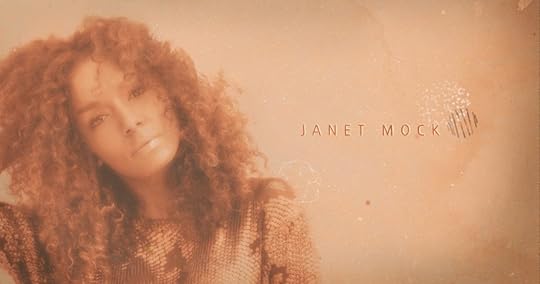 'In the second episode of Fusion’s
Self Evidence
series, bestselling writer, TV commentator, and transgender activist Janet Mock explains how she acquired a true sense of freedom once she rejected others’ expectations of who she was supposed to be.'
'In the second episode of Fusion’s
Self Evidence
series, bestselling writer, TV commentator, and transgender activist Janet Mock explains how she acquired a true sense of freedom once she rejected others’ expectations of who she was supposed to be.'
Published on February 24, 2015 10:53
A Lady Must Live: A Lena Horne Tribute
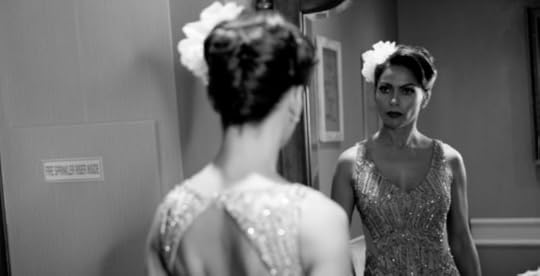 Actress Salli Richardson-Whitfield pays tribute to the legendary Lena Horne in the short film
A Lady Must Live: A Lena Horne Tribute
. The film is produced by
CodeBlack Films
in collaboration with Ebony.com.
Actress Salli Richardson-Whitfield pays tribute to the legendary Lena Horne in the short film
A Lady Must Live: A Lena Horne Tribute
. The film is produced by
CodeBlack Films
in collaboration with Ebony.com.
Published on February 24, 2015 10:43
Raheem DeVaughn Discusses New Recording LOVE SEX PASSION
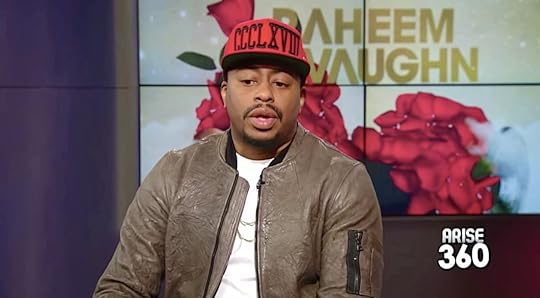 Arise 360 talks with Raheem DeVaughn about his 5th studio recording, LOVE SEX PASSION.
Arise 360 talks with Raheem DeVaughn about his 5th studio recording, LOVE SEX PASSION.
Published on February 24, 2015 05:41
Mark Anthony Neal to Deliver Black History Month Keynote at Western Illinois University
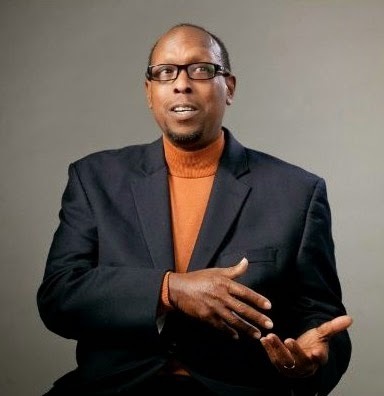 Neal to Deliver Black History Month Keynote at Western Illinois University
Neal to Deliver Black History Month Keynote at Western Illinois UniversityMACOMB, IL – The keynote address of Western Illinois University's Black History Month celebration will be delivered by Duke University African American Studies Professor Mark Anthony Neal at 7 p.m. Thursday, Feb. 26.
Neal will deliver " From Selma to Ferguson: Black Social Protest from Sit-Ins to Die-Ins – Where Do you Draw the Line Between Ethics and Social Responsibility ," in Morgan Hall, 101B. A question and answer session will follow the lecture.
Using a conceptual framework of social movements and the Greensboro sit-ins as a starting point, Neal's talk will historicize the use of "social media" in Black social justice movements and examine examples of how it has been used in contemporary social justice activities. Additionally, the project will look at organizations, like One Hood Media Academy in Pittsburgh, PA, and the Digital Youth Network in Chicago, using digital technology and social media to address communities in crisis.
Neal earned his doctoral degree in American studies from the State University of New York at Buffalo in 1996. He scholarly work includes the fields of African-American, cultural and gender studies, which draws upon modes of inquiry informed by the fields of literary theory, urban sociology, social history, postmodern philosophy, Queer theory and popular culture. Neal's work aims to engage the ideological undercurrents within commercial popular culture, particularly within the context of race, gender, sexuality, class and ethnicity.
"We are pleased to bring this educator and author to the WIU campus. His research is current and relevant to events and reactions occurring in society today," said F. Erik Brooks, professor and chair of the WIU Department of African American Studies and interim director of the Gwendolyn Brooks Cultural Center.
The lecture is open free to the public. This event is co-sponsored by the WIU Department of African American Studies, the Gwendolyn Brooks Cultural Center, the Office of the Provost and Academic Vice-President, the University Theme Committee and the Visiting Lectures Committee.
For more information, contact the WIU Department of African American Studies at (309) 298-1181.
Posted By: WIU News (U-Relations@wiu.edu)Office of University Relations
Published on February 24, 2015 05:06
February 23, 2015
UCBComedy: The Oscars Haven't Changed Since 1940 (Satire)
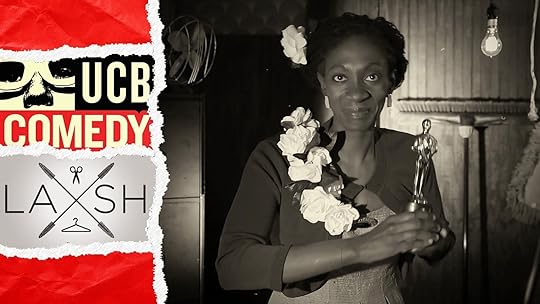 'Hattie McDaniel -- the first black actor to win an Oscar - looks forward to when black actresses will win Academy Awards for all sorts of roles, not just slaves and The Help'. (Satire).Director - Megan Stein
'Hattie McDaniel -- the first black actor to win an Oscar - looks forward to when black actresses will win Academy Awards for all sorts of roles, not just slaves and The Help'. (Satire).Director - Megan SteinWriter - Ana Breton
Script Editor- Laura Grey
Featuring - Keisha Zollar, Jared Simon
Director of Photography - Ana Breton
Art Direction - Hudson Meredith, Grace Leeson
Costumes, Hair & Make Up - Juliana Brafa
Editor - Ana Breton
Producer - Juliana Brafa
Sound - Grace Leeson
Grip - Angel Yau
Script Supervisor, AD - Laura Grey
Production Assistant- Hilary Kissinger, Megan Fritz
Published on February 23, 2015 09:57
Historian John Hope Franklin On the 1898 Wilmington Riots
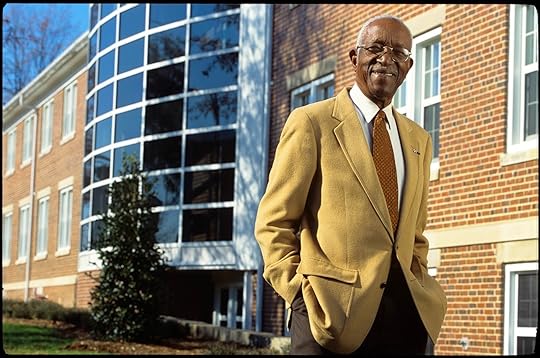 The late Historian John Hope Franklin explains why the 1898 Wilmington Race Riots – what he describes as a "coup d'etat"—remain relevant today.
The late Historian John Hope Franklin explains why the 1898 Wilmington Race Riots – what he describes as a "coup d'etat"—remain relevant today.
Published on February 23, 2015 04:10
February 22, 2015
Race & Hollywood: Is 'Black or White' Really the Epitome of White Racism?
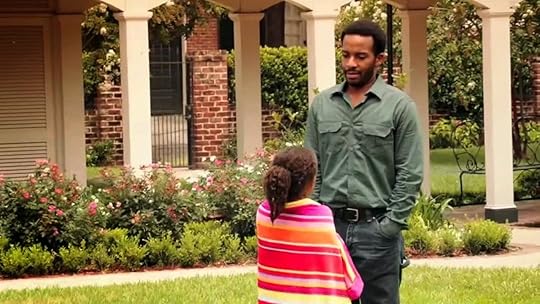 Race & Hollywood: Is Black or White Really the Epitome of White Racism?by Simone Drake | special to NewBlackMan (in Exile)
Race & Hollywood: Is Black or White Really the Epitome of White Racism?by Simone Drake | special to NewBlackMan (in Exile)I am perplexed by the reviews of the film Black or White. As someone who is married to a biracial, transracial adoptee, I know firsthand the prickly racial trouble that can emerge when white individuals chose to adopt non-white, and especially black, children as savior figures, as the great white missionaries who selflessly toil to save poor black victims.
It has been a rough road standing by my husband as he has painfully worked through his sense of betrayal by both the birth mom who “didn’t want him” and an adoptive mother who never has, and has made clear never will, tell him she loves him. Thus, my husband’s experience with his adoptive parents was more like dutiful wards whose job was to provide food, shelter, and material goods until he was grown and would no longer be their problem; albeit, they did move to a black neighborhood during the 1970s in an effort to provide some level of black cultural awareness.
My husband’s story is one that deeply disturbs me and is painful to watch him try to negotiate now. I do not, however, read Black or White as sharing strong parallels with my husband’s experience. The most obvious difference—and one seemingly lost on many reviewers—is that the subject of the film is not transracial adoption; the subject of the film is a biological custody battle. Elliott Anderson (Kevin Costner), a wealthy lawyer, and his recently deceased (car accident) wife Carol (Jennifer Ehle) become the legal guardians of their newborn granddaughter Eloise (Jillian Estell) when their seventeen-year-old daughter dies in childbirth. Upon the death of Carol seven years later, Eloise’s paternal grandmother and self-made woman Rowena Jeffers (Octavia Spencer) decides Eloise needs more than Elliot can provide Eloise and a custody battle ensues.
Elliot is not a random, wealthy white guy who wants to do some good in the world by saving a helpless black child. He is the biological grandfather of a black child whom he has raised from childbirth, though it becomes clear his wife did the majority of the child rearing, and he clearly understands Eloise as his grandchild.
I, therefore, wonder if part of what is so unsettling for oppositional reviewers (there are a lot) is not that this film is “a movie about white frustration, about the fear and anxiety of being called out as racist,” but that the film demands we think about inter-racial relationships and biracialism in ways that are discomforting. Slavery in the United States haunts this film, forcing the inter-racial biological relationship at its center into an antebellum history in which white slaveowners own black bodies, and all too often, black bodies that were kin. Perhaps the reality of this history makes it difficult for some spectators to imagine the possibility that Elliott loves Eloise rather than simply wants to be a white savior.
After Elliott’s whiteness, his alcoholism and his inability to do Eloise’s hair are the next two favored examples of why he is unfit to raise Eloise. The alcoholism is a significant problem and, like grief counseling, is troublingly skirted over in the film. The hair issue, however, seems trite. How many men, across racial lines, are adept at styling their daughter’s [or granddaughter’s] hair?
My local news channel recently spotlighted a single, white father of a two-year-old white daughter who enrolled in evening cosmetology school, so he could learn how to do his daughter’s hair. When I was in fifth grade, my own black father took up doing “something” to my hair to help my mother when my sister was born; he made it work but it was clear that prior to that point he had never done a black girl’s hair (I had a lot of long, thick, curly hair like Eloise). In spite of it not seeming so common for fathers of any race to style their daughter’s hair, black reviewers in particular have lambasted Elliott for being clueless about hairstyling—a cluelessness that must surely be because he is a racist white man. Thus, Eloise’s hair that “[…]not once, not a single time in this movie that appears to span weeks, does anybody comb this poor child’s hair” becomes Exhibit A for why white people are unfit to raise black children.
I read several reviews prior to viewing the film, several post-viewing, and have observed numerous FB posts from academic friends (non-academic friends do not seem to care one way or the other about the film, at least not publicly), and I am left wondering how many people actually viewed the film prior to casting a verdict, because, well, there are some factual errors and many statements presented out of context in the reviews and posts I read. The one that I found most disturbing is Rowena, or Grandma Wewe’s, rationale for pursuing shared custody. At Carol’s wake, Rowena initially questions whether Elliott feels capable of raising a child all alone. Nothing about him being white and raising a black child. Even when Elliott learns Rowena is pursuing shared custody and goes to her home to speak to her, race enters the conversation eventually, but it is not at the center of the discussion—Rowena makes it a gender issue. Carol was fine, she was a mother, Rowena easily concedes, as she adds, men cannot do what a woman can do. She also notes that Eloise needs to know her other side of her family and “needs more love than just what her grandfather can give her,” not because he is white, but because he is not a woman and is only one individual.
Race only comes up when Elliott resists the idea of shared custody and disrupting what he felt was a stable home life, compelling Rowena to propose that perhaps what he really means is that he does not want Eloise growing up around black people. In fact, Rowena is opposed to her brother, Jeremiah (Anthony Mackie), who serves as her legal counsel, and his legal team representing the issue as Elliott being racist, rather than Eloise simply needing to have both sides of her family in her life.
I would caution against identifying Elliott as a racist or dangerous caregiver for Eloise simply because he complains that Rowena always brings race into it. Although he pushed back against Rowena’s custody pursuit—which I would do if anyone pursued custody of my child—he does ask Eloise if she would want to go live with her relatives in Compton, and he asks her the same question when awaiting the verdict from the custody hearing. Both times Eloise says she wants to stay with him but she loves her other family, too.
Aside from the significance I see in anyone engaging a child and considering her feelings in a society that all too often silences children, the way in which this scene is set was also quite compelling. Eloise is sitting on Elliott’s lap as he reads her a story and she hugs and kisses him. The fact that this scene is ignored in racial critiques reinforces for me the deep-rooted difficulty with imagining that white people would claim ownership of blackness outside of exploitive enterprises. Put differently, imagining inter-racial love is very difficult in a nation that once, and not so long ago, legally disallowed such unions.
Elliott’s insistence that “[t]his isn’t about black or white, this is about Eloise” triggers deep ire from many black reviewers. When his co-worker Rick (Bill Burr), who ends up being Elliott’s illogical legal counsel, asks Elliot if he is “up to raising a little black kid,” Elliott exclaims she’s half black and half white and that Rick’s question was the “stupidest thing [he] ever heard.”
Perhaps I am too generous, but my interpretation of Rick’s question was not that he had a problem with black people but, rather, he was acutely aware of the challenges both Elliott and Eloise would incur as an inter-racial family in the United States. Thus, I believe the dismissive, oppositional reviews seem to do just what they indict the film for doing—shut down dialogue. When the film is dismissed as a racist project with such absolutism, no place is left for dialogues about the purported conversation the film, itself, failed to truly engage or elicit.
This failure seems to be particularly true with the final courtroom scene. When Eloise’s crack addicted father Reggie Davis (André Holland) returns to try to strike a deal with Elliott—money in exchange for no contest to custody—and is forced by Rowena to be the sole petitioner for custody, Elliott and Reggie have an encounter that ends with Elliott calling Reggie a “street nigger.” Of course, the racial epithet returns to haunt Elliott in the custody hearing, compelling him to offer the excuse that it is what Reggie called himself in the text messages on Elliott’s daughter’s cell phone.
This opens the door for race to indeed be at the center of the hearing. Elliott acknowledges that skin color is the first thing he sees, just as the first thing black people see is his white skin (and breasts are the first thing he notices on women). When asked if he dislikes black people, he candidly responds, “Not all of them.”
At the finale of the interrogation, Elliott exclaims with agitation, “No, I’m not racially prejudiced, I just don’t want your nephew’s broken-down, black-ass anywhere near my grand-daughter.” Afterward, his attorney facetiously assures Elliott he was great: “None of the other Klan members could be that articulate.”
Elliott’s politically incorrect diatribe ends up being moot when the story wraps up quickly, if not ridiculously, when the same evening as the final court room proceedings, Reggie shows up at Elliott’s house high on crack to abduct his daughter, and a drunken Elliott fights to keep him from her. Elliott ends up nearly drowning in his swimming pool, and Reggie has a change of heart and finds Elliott just in time. The film ends with Elliott being granted full custody due to both Reggie and Rowena rescinding their contestation, Elliott not pressing charges against Reggie, and Elliott leaving Eloise with her black family for a while, so he can pull himself back together.
The overly simplistic ending is what I would say is the true shortcoming of this film, because what we do not see—what, in fact, seems unspeakable—is for people to not talk at one another about race but to speak with one another about race. It seems that the film could have done real work of talking about race if it started where it ends and the characters had to discuss racial differences and the true work of inter-racial family relations. In this sense, then, the film does mirror my husband’s transracial adoption experience of pretending a racial Xanadu in which if you avoid talking about race, then race just might stop mattering. And that is where I take offense.
***
Simone Drake is an assistant professor of African American and African Studies at The Ohio State University. She is the author of Critical Appropriations: African American Women and the Construction of Transnational Identity (LSU Press) and her second book, When We Imagine Grace: Black Men and Subject Making is under contract with University of Chicago Press.
Published on February 22, 2015 13:07
February 21, 2015
"To Be Young, Gifted & Black": Nina Simone at The Harlem Cultural Festival (1969)
Published on February 21, 2015 12:09
February 20, 2015
August Wilson: The Ground on Which I Stand -- Behind the Scenes Convo with James Earl Jones
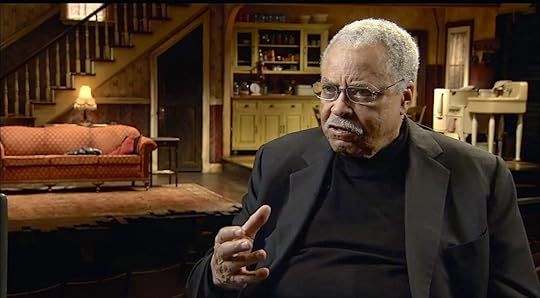 'Film and stage actor James Earl Jones is interviewed by film director Sam Pollard in this behind-the-scenes footage from
August Wilson: The Ground on Which I Stand
. In 1987 Jones won a Tony Award for Best Actor in a Play for his role in Fences, for which August Wilson won a Tony Award for Best Play and the first of two Pulitzer Prizes for Drama.' -- American Masters
'Film and stage actor James Earl Jones is interviewed by film director Sam Pollard in this behind-the-scenes footage from
August Wilson: The Ground on Which I Stand
. In 1987 Jones won a Tony Award for Best Actor in a Play for his role in Fences, for which August Wilson won a Tony Award for Best Play and the first of two Pulitzer Prizes for Drama.' -- American Masters
Published on February 20, 2015 10:14
Mark Anthony Neal's Blog
- Mark Anthony Neal's profile
- 30 followers
Mark Anthony Neal isn't a Goodreads Author
(yet),
but they
do have a blog,
so here are some recent posts imported from
their feed.




